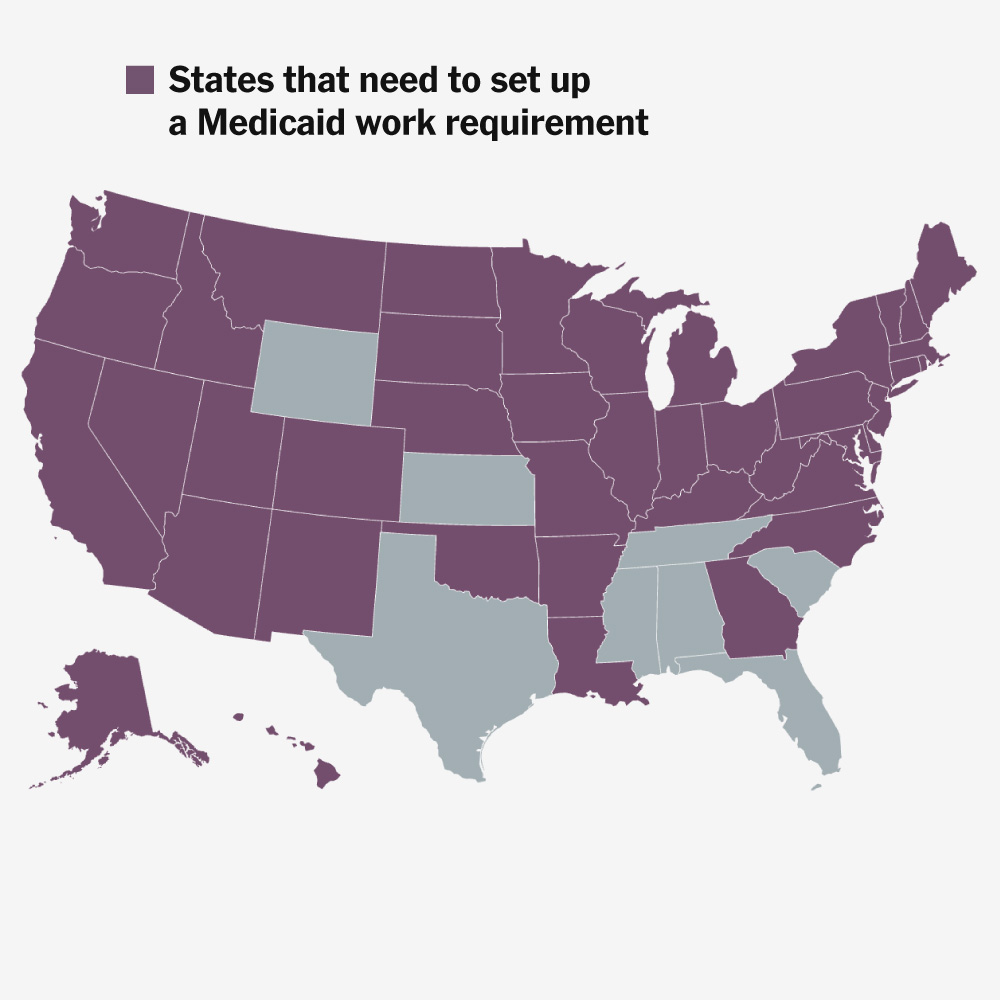URGENT UPDATE: New reports confirm that starting this month, Medicaid’s new work requirement will impose significant hurdles for millions of poor Americans seeking health coverage. As states scramble to implement these changes, the impact on vulnerable populations is expected to be immediate and profound.
The latest developments indicate that as of October 2023, individuals must meet specific work criteria to maintain their Medicaid benefits. This new policy, confirmed by federal officials, aims to reduce dependency on government programs but is set to create complex bureaucracies within state systems.
IMPACT: This dramatic shift means that many Americans could lose their health coverage if they fail to meet these requirements. The alterations are already causing anxiety among beneficiaries who are unsure about how to navigate the new rules. Experts warn that these changes could exacerbate economic hardships for families already struggling to make ends meet.
State governments will need to rapidly develop systems to verify employment status, which could lead to delays and confusion for applicants. Authorities anticipate that increased administrative burdens will place additional strain on already overextended state agencies.
DETAILS: The work requirement applies to adults aged 19 to 64 who are not pregnant or disabled. Under this new protocol, individuals must demonstrate that they are working or meeting specific volunteer hours. States have until the end of the year to establish effective tracking systems, raising concerns about potential gaps in coverage and access to care.
This policy shift comes as part of broader reforms aimed at reshaping Medicaid, which serves over 80 million Americans. Advocates for the poor are expressing deep concern about the potential fallout, emphasizing the need for accessible healthcare, especially during economic uncertainties.
As these changes roll out, it is crucial for affected individuals to stay informed about their rights and responsibilities under the new system. Community organizations are mobilizing to provide support, but the urgency remains high as the clock ticks down to enforcement deadlines.
NEXT STEPS: Observers will be closely watching how states adapt to these new requirements and the impact on Medicaid enrollment numbers. With millions at stake, the situation is rapidly evolving. Individuals relying on Medicaid are urged to check their eligibility and stay in contact with local health services for updates.
The ramifications of this policy change are expected to unfold in real-time, affecting healthcare access for the most vulnerable populations. As this situation develops, updates will be crucial for those navigating this new landscape.
Stay tuned as we bring you the latest on this critical issue affecting millions across the nation.






































































